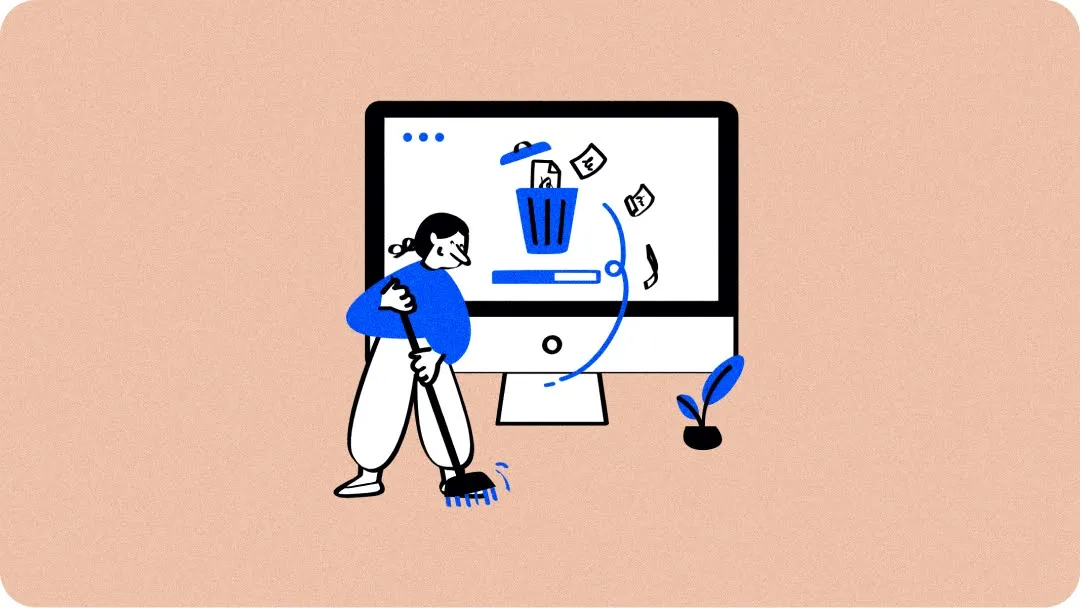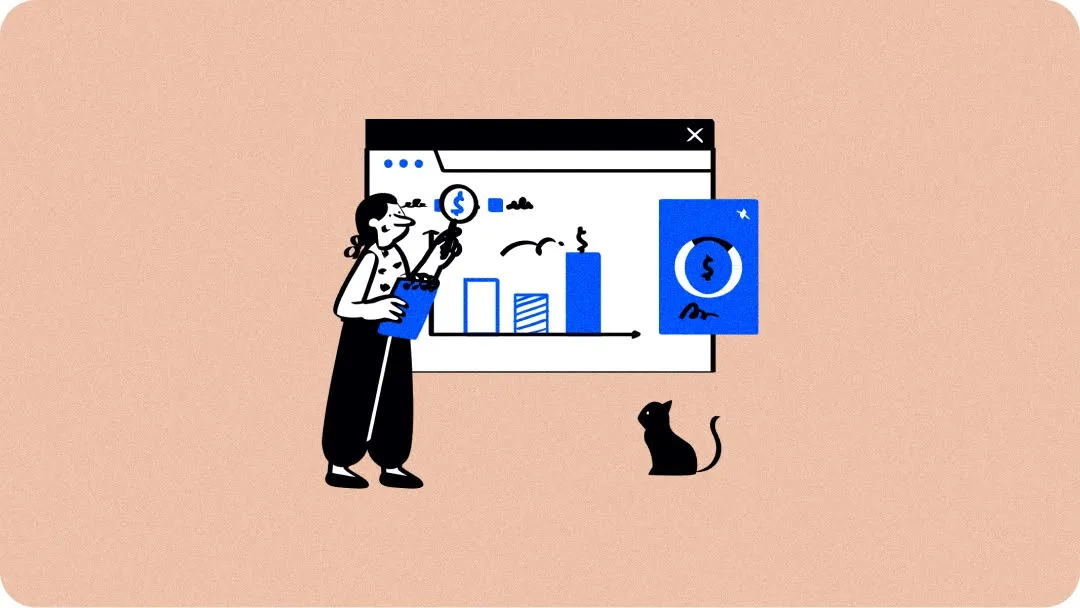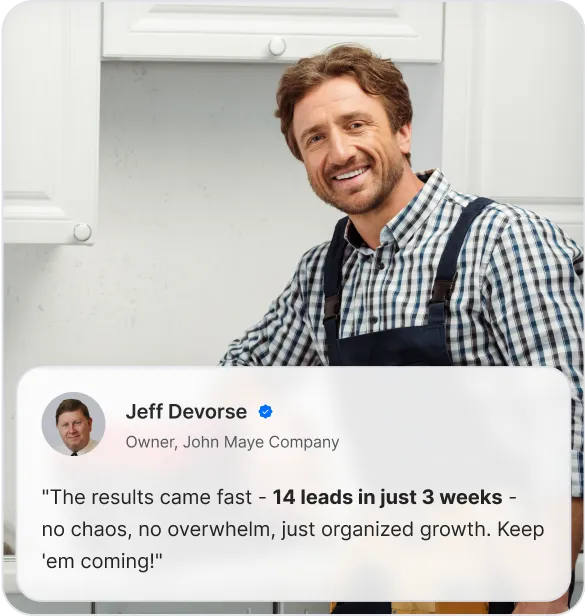Distributors face the challenge of building relationships with manufacturers while keeping customers satisfied and loyal.

The real struggle is balancing both sides, where one misstep can lead to lost opportunities. In a crowded market with competing distributors offering similar products, simply pushing more sales won’t cut it.
You need a distributor marketing strategy that drives the right leads and builds long-term partnerships.
This article is for you if you're ready to move beyond generic approaches and implement actionable strategies to stand out in a digital-first world.
Building a Strong Foundation for Distributor Marketing
Distributor marketing is about building long-lasting relationships with manufacturers and customers. Understanding the unique dynamics of the distribution space is crucial to creating a strong foundation that supports long-term growth and success.
What is Distributor Marketing? Get to Know Its Unique Role
Distributor marketing differs significantly from B2C or manufacturer marketing because it involves acting as the bridge between the producer and the retailer.
It requires balancing the needs of both sides while optimizing the flow of products.
- Manufacturer Focus: Often product-centric, focusing on reaching as many consumers as possible.
- Distributor Focus: Focuses on managing relationships and ensuring products reach the right retailers at the right time.
- Key Distinction: It’s about channel management, product availability, and providing support to retail networks, advertising or product promotion.
Why Distributor Marketing is Crucial for Long-Term Success?
Effective distributor marketing is essential to maintaining a cohesive supply chain and seizing growth opportunities. Without it, relationships can weaken, and long-term success may be jeopardized.
- Relationship-First Approach: Focus on long-term partnerships rather than one-time transactions.
- Tailored Strategies: Marketing strategies should be customized based on the needs of each manufacturer and retailer, ensuring both sides benefit.
- Long-Term Benefits: Effective distributor marketing supports business stability and growth by fostering trust and improving customer retention.
Also Read: Why Smart Distributors Are Choosing CRM?
3 Essential Strategies to Drive Distributor Marketing Success
Distributor marketing success hinges on a well-thought-out strategy. Creating a solid marketing plan and using digital tools for increased reach will help you stay ahead in a competitive landscape.
Crafting a Strategic Marketing Plan for Distributors
A strategic marketing plan focuses on clear segmentation, goals, and KPIs. This allows you to measure success and adapt your tactics as necessary.
- Market Segmentation: Identify the target audience, including specific industries, roles, and regions.
- Setting SMART Goals: Develop clear, measurable, achievable, relevant, and time-bound goals.
- KPIs: Define key performance indicators to track progress and adjust strategies.
Want to know how to effectively approach distributors? Here’s what some Reddit users suggest on: Best strategies for reaching out to distributors to become a vendor
Maximizing Reach through Digital Channels and eCommerce
Incorporating SEO, content marketing, and targeted ads can dramatically increase the reach of your products and services, helping you connect with more retailers and end customers.
- SEO: Optimize product listings and website content to appear in search results.
- Content Marketing: Develop educational content, case studies, and blogs that provide value to your audience.
- Targeted Ads: Use paid search ads on platforms like Google and LinkedIn to increase visibility.
Building a Seamless Digital Catalog and Ordering System
Digital catalogs and automated ordering systems streamline the customer journey, making it easier for customers to browse products, check availability, and place orders.
- Digital Catalogs: Provide an interactive platform for customers to view product offerings with real-time updates on stock and prices.
- Automated Ordering: Integrate systems that automate the ordering process, reducing errors and lead times.
- Customer Experience: A smooth, efficient experience encourages repeat business and fosters customer loyalty.
Strengthening Relationships and Building Trust
A successful distributor marketing strategy is built on strong, trusting relationships with manufacturers, retailers, and customers. These relationships can be nurtured with the right CRM tools and customer incentives.
Leveraging CRM Tools for Stronger Distributor Relationships
CRM tools help distributors build lasting relationships by tracking interactions and personalizing communication. This fosters trust and loyalty, which are essential for long-term success.
- Personalized Communication: Use CRM systems to tailor messages and promotions to specific customers.
- Tracking Relationships: Monitor communication history and preferences to provide more effective customer service.
- Customer Retention: CRM data allows you to spot opportunities for follow-ups and relationship-building.
Must Read: Best CRM for Manufacturing Companies: 5 Platforms That Track Leads Better
Referral Programs and Loyalty Incentives to Drive Growth
Referral programs incentivize customers to bring in new clients, while loyalty programs keep existing customers engaged, fostering a cycle of growth.
- Referral Programs: Offer discounts or rewards to customers who refer new clients.
- Loyalty Incentives: Provide exclusive deals or early access to products for repeat buyers.
Effective Vendor Relationship Management
Building trust and aligning goals with vendors is crucial for distributors. It enables better marketing efforts and helps them stay competitive in the market.
Navigating the Complex World of Vendor and Supplier Partnerships
Managing vendor relationships effectively requires open communication and strategic alignment. Distributors must balance supplier and customer needs to maintain productive partnerships.
- Clear Communication: Regular updates ensure alignment on product availability and market demands.
- Performance Metrics: Set clear benchmarks to meet mutual expectations.
- Long-Term Partnerships: Cultivate relationships that foster long-term growth and success.
Tackling Internal and External Competition in the Distribution Space
With the rise of e-commerce and D2C models, distributors need to differentiate themselves in a crowded space. Focusing on service quality and customer satisfaction is key to staying competitive.
- Differentiation: Offer unique services or exclusive products to stand out.
- Customer-Centric Focus: Prioritize customer satisfaction to build loyalty and attract new clients.
- Adaptation: Stay agile in response to evolving market trends and customer needs.
Overcoming Common Challenges in Distributor Marketing
Distributor marketing comes with its own set of challenges. Staying competitive amidst market disruption and using data for smarter decisions are crucial hurdles to overcome for sustained growth.
Staying Competitive Amidst Market Disruptions
E-commerce and D2C models are putting pressure on distributors. By offering value-added services and strengthening relationships, distributors can weather these disruptions.
- Value-Added Services: Provide services like personalized deliveries or subscription models to stand out.
- Adaptation: Use agile marketing strategies to stay ahead of market changes.
- Customer Retention: Focus on delivering an exceptional customer experience that keeps clients loyal.
Making Data-Driven Decisions for Smarter Marketing
Using customer data and analytics helps distributors refine their strategies, improve marketing ROI, and make informed decisions based on real-time insights.
- Data Analytics: Leverage tools to track customer behavior and preferences.
- Insights: Use this data to adjust marketing efforts, target new customer segments, and improve conversion rates.
- Optimization: Continuously test and refine strategies to ensure maximum effectiveness.
Adapting to Emerging Technologies in Distribution
Emerging technologies, such as AI and automation, are revolutionizing distributor marketing. Embracing these technologies will help distributors streamline operations and gain a competitive advantage.
- AI Integration: Use AI to automate processes and personalize customer interactions.
- Efficiency Gains: Automation reduces operational costs and improves service quality.
- Staying Competitive: By adopting new technologies early, distributors can stay ahead of the curve.
Preparing for the Future of Distributor Marketing
The future of distributor marketing lies in embracing digital tools, sustainability, and omnichannel distribution. Staying ahead requires adaptability and a focus on long-term success.
Embracing Digital Transformation and Automation
By adopting automation and integrating digital tools, distributors can enhance operational efficiency and improve customer experiences.
- Automation: Streamline workflows and reduce manual efforts through automation.
- Digital Tools: Implement platforms that integrate marketing, sales, and customer service.
- Competitive Edge: Stay agile and responsive to market changes with real-time data.
Sustainability as a Marketing Differentiator in Distribution
Sustainability is increasingly important to both consumers and businesses. By incorporating eco-friendly practices, distributors can differentiate themselves and attract environmentally-conscious customers.
- Eco-Friendly Practices: Use sustainable packaging and eco-conscious sourcing.
- Marketing Strategy: Highlight these practices in your marketing campaigns to attract conscious consumers.
- Brand Loyalty: Sustainability can build brand loyalty and create new business opportunities.
Integrating Omni-Channel Distribution for a Seamless Experience
An omni-channel approach ensures that customers experience consistent service across all platforms. This creates a seamless buying experience that boosts customer satisfaction and loyalty.
- Online & Offline Integration: Provide a unified experience that bridges both digital and physical channels.
- Customer-Centric: Offer flexible buying options based on customer preferences.
- Seamless Experience: A smooth transition between channels enhances overall customer satisfaction.
Take Action and Transform Your Distributor Marketing Strategy
A strategic approach that leverages automation, CRM, and analytics is the key to driving real results.
Remember, the real challenge is about building stronger relationships, optimizing your processes, and staying agile in a digital-first world.
If you're still relying on outdated methods or generic strategies, now's the time to make a change.
FAQs
Q1. What is distributor marketing, and how is it different from B2C marketing?
A1. Distributor marketing focuses on managing the flow of products between manufacturers and retailers. Unlike B2C marketing, which targets consumers directly, distributor marketing emphasizes relationship-building and optimizing the supply chain.
Q2. How can I build a strong distributor marketing strategy?
A2. Start by defining your target market, setting clear goals, and integrating digital tools like SEO and CRM systems. Create a comprehensive plan that includes segmentation, KPI tracking, and continuous optimization.
Q3. Why is customer relationship management (CRM) important in distributor marketing?
A3. CRM systems help distributors manage interactions with manufacturers and retailers, enabling personalized communication and building long-term loyalty. They provide insights to improve customer service and drive repeat business.
Q4. How do I differentiate my distributor business in a competitive market?
A4. Focus on offering value-added services, personalized customer experiences, and unique product offerings. Leverage digital channels and eCommerce to expand your reach and position your brand as a trusted partner.
Q5. What role does digital transformation play in distributor marketing?
A5. Digital transformation streamlines processes, automates tasks, and enhances customer experiences. By adopting digital tools like automation, CRM, and analytics, distributors can improve efficiency and stay competitive in a rapidly evolving market.
Q6. How can I use data to improve my distributor marketing efforts?
A6. Collect customer insights and track sales data to refine your strategies. Data-driven decisions help distributors understand market trends, improve targeting, and enhance ROI through smarter marketing initiatives.
Q7. What are the key challenges faced by distributors in marketing?
A7. Distributors face challenges such as fierce competition from e-commerce, managing vendor relationships, and adapting to rapidly changing market dynamics. Overcoming these requires strategic planning, strong partnerships, and leveraging technology.



















.webp)








.webp)

.svg)


.svg)
.svg)
.svg)




.svg)


